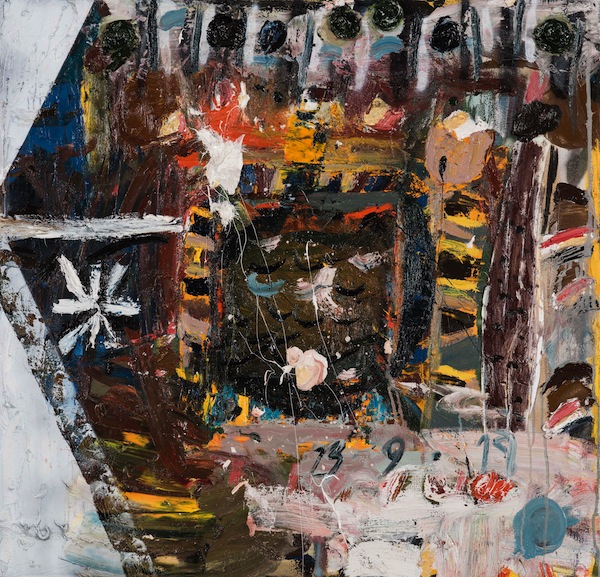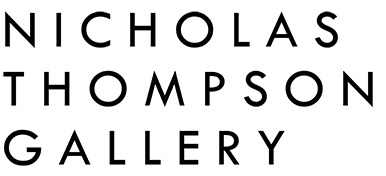JAMES DRINKWATER INTERVIEWED BY CHLOE MANDRYK IN NEW ISSUE OF ART ALMANAC, JUNE 2019
James Drinkwater: the sea calls me by name
In speaking with James Drinkwater ahead of a major survey show at Newcastle Art Gallery we explore his porous approach to painting where an intriguing conceptual and material web is crafted, it’s a structure with space for transience, like a dream-catcher. His paintings possess an associative aesthetic that invites the audience to join, or complete an emotional journey.
You very eloquently describe your personal relationship with painting as a ‘long eternal conversation with the past’. But, making or creating is generative, so what are you hoping to contribute to this moment, or the future?
I’ve always believed that a clear contemporary voice has a deep respect and understanding of the past, the lineage of a well-worn track made by people just like me. So many of my peers have powerful and important political voices, my role however has always been to offer the viewer respite, not the comfortable arm chair that Matisse offered but an opportunity to lose oneself in the echo chambers of their own lives. We really are just entering and exiting a series of theatres, some horrific and some very beautiful. These themes are both old and new, eternal even.

James Drinkwater, Night Swim in The Sea Baths, 2018, oil on canvas, 96 x 99cm. Courtesy the artist and Newcastle Art Gallery, New South Wales
You are inspired by a heady combination of memory and intuition. Why do you think this is?
When we are intuitive we are guided by our innate self, an unguarded version of us. When I am ‘there’ the channels of memory are opened and somehow physical, as malleable as a slab of clay. Whilst in that space memory and intuition can synthesise. It’s a powerful mode to enter.
What is the role of the somatic senses, where ‘even a smell is very visual’ in your painting?
Our senses connect us with the physical and allow us to evaluate and ingest our environment. I’m most certainly a sensory animal, heightened at all times I consume both the divine and the ungodly because it’s all happening right in front of us. I’m so thankful for the ancient act of painting because it continues to be paramount as a vehicle for artists to describe the world and their existence within it.
Are you interested in verity and the inaccuracy of memory because your mode is abstraction? How did you come to this?
With memory we can choose how we want to recall the event. Like sculptors we add or subtract weight to the event, pushing and pulling it until we have it recorded in a way, which suits the now. I personally like when we lose all chronology and order of the experience, when an overwhelming feeling overrides the actuality. In this sense I don’t see my work as abstract rather as recordings of the interior of my life.

James Drinkwater, Looking for urchins and Louis ferrari, 2018, oil on canvas, 240 x 180cm. Courtesy the artist and Newcastle Art Gallery, New South Wales
You always start a painting in a new way and sometimes re-orient a canvas to bring a work to fruition. Are you making a choice to bring automatism into your practice, and how does that paradox fit with the free-flow you’re trying to achieve?
In doing something foreign to my practice I’m trying to trick and deceive myself in order to arrive at something new. I like to think I’m composing in a free form manner, ad libbing my way through the terrifying halls of painting. I certainly don’t try and make pictures, I’m riffing with process and the endlessness of the idea of alchemy in the studio. The end result is an artefact of an exercise. That is why it hurts to see them go, because I have learnt so much from them.
How do you think the imagination of children is imbued into your work? Is this interesting to you because of the subconscious?
Looking at the world through the lens of my children has been so valuable to me and it ricochets back through my own childhood. It forces me to re-enter those spaces. I love seeing children work their way out of boredom, something incredible always happens.
Lastly, can you describe the role of Newcastle in your work?
When British painter Leon Kossoff talks about his London he quotes the great Russian poet Anna Akhmatova ‘I know only one city in the world and I can find my way around it by feel in my sleep’. This is the intimacy felt when I think of Newcastle and my life is given value by its proximity to her beaches. The sea calls me by name.
Newcastle Art Gallery
1 June to 11 August, 2019
New South Wales
